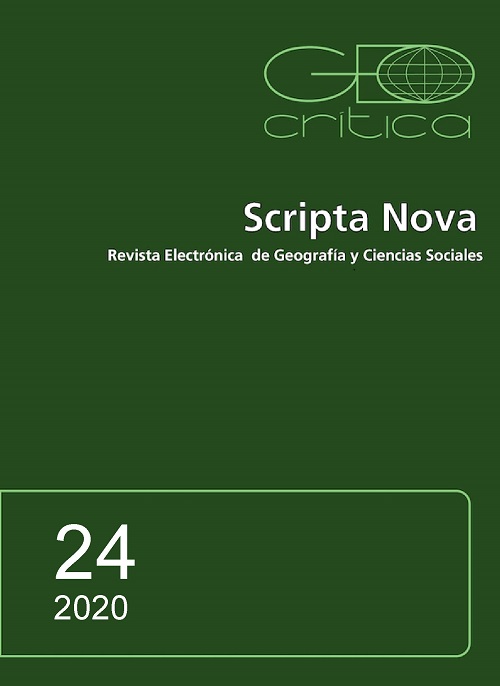652. The construction and appropiation of cultural landscapes: a historical political ecology of Wallmapu/Araucanía, Chile
DOI:
https://doi.org/10.1344/sn2020.24.30346Keywords:
Wallmapu/Araucanía, Historical political ecology, landscapes of power, the Chilean Wheat Bowl, Green GoldAbstract
The Wallmapu territory, since its incorporation into the Republic of Chile as the Region of Araucanía, has been subject to significant territorial transformations.This article uses the perspective of historical political ecology to understand how the construction of cultural landscapes became a device for exercising hegemonic power. These landscapes of power evolved over time as different demands were established in this territory: first as the ‘Wheat bowl’ at the end of the nineteenth century and then the ‘Green Gold’ forestry plantations during the twentieth and twenty-first centuries. Both landscapes facilitated a dominant common sense of modernity, progress and development in Wallmapu/Araucanía, that has contributed to the ongoing State-Mapuche people conflict.Downloads
Published
2020-12-15
Issue
Section
Articles
License
Los autores que publican en esta revista están de acuerdo con los siguientes términos:
- Los autores conservan los derechos de autoría y otorgan a la revista el derecho de primera publicación, cin la obra disponible simultáneamente bajo una Licéncia de Atribución Compartir igual de Creative Commons que permite compartir la obra con terceros, siempre que estos reconozcan la autoría y la publicación inicial en esta revista.
- Los autores son libres de realizar acuerdos contractuales adicionales independientes para la distribución no exclusiva de la versió de la obra publicada en la revista (com por ejemplo la publicación en un repositorio institucional o en un libro), siempre que se reconozca la publicación inicial en esta revista.





